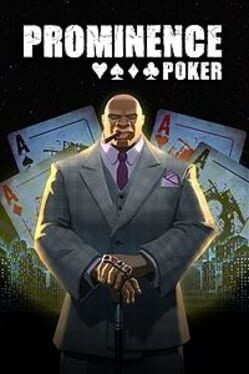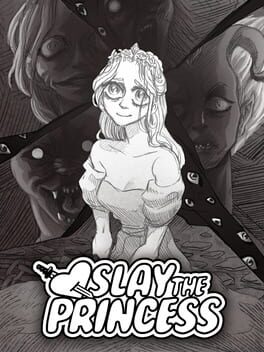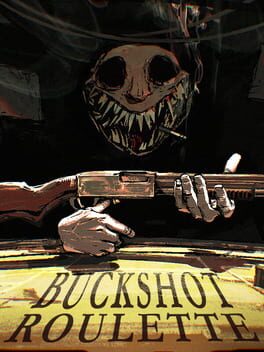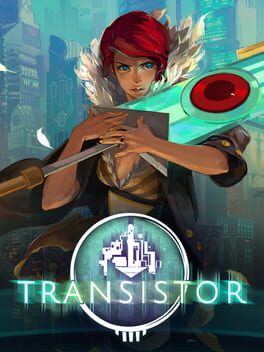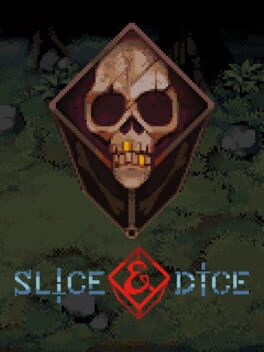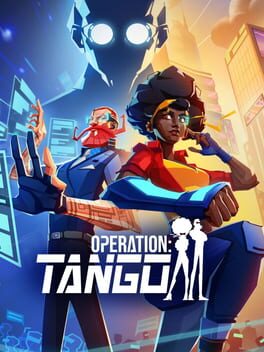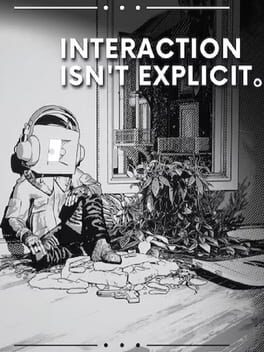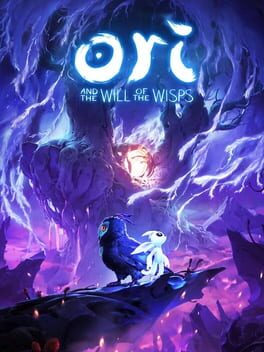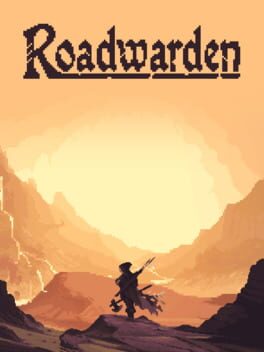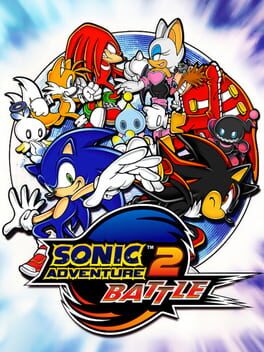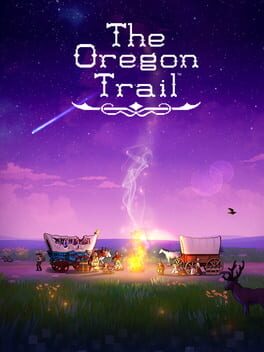PapaJaeger
BACKER
2022
When I was a kid I was bullied a lot and had no friends at school. But what I did have was Legend of Zelda: Ocarina of Time. That game made me feel brave. It made me feel less alone. I was the Hero of Time. It was a much needed escape from the hardships of my elementary school social life.
Tunic is a blend a lot of things, but mostly it's a love letter to Zelda, a series very near and dear to my heart. Others my age who grew up influenced by Ocarina of Time are now making their own games, and it's an encouraging sight for the future of video game artistry. Tunic made me feel like a kid again in the most wholesome way. I felt excited when discovering something new, triumphant when beating a difficult boss, and even felt brave when overcoming the spooky bits.
Tunic features one of my new all-time favorite "tutorial" systems which was the Instruction Booklet. I think this is worth talking about because it's so freakin' cool. It plays on the nostalgia while also being a puzzle in itself; there are many secrets to find within the guide. I love the little details like notes written in it. It also never felt meta or 4th wall breaky to me, more so it just felt like I was a kid again reading the manuals to help me beat Temple of Time.
The presentation was also wonderful. The music slaps (I've been listening to Memories of Memories on repeat for 4 days straight) and there was some really fantastic visuals (shoutout to the awesome skeletal shop vendor creature, he was so cool looking).
However... very unfortunately, this game was not perfect. I really do not like Soulslike gameplay tropes and this game had its fair share. A few systems I did not like:
- When you die, you lose all your consumables. This made boss fights annoying because if you wanted items you'd have to go grind coin to buy more.
- Enemies respawning whenever you rest. It's just annoying.
- There was some enemy minion designs that I just despised. Like they were annoying just for the sake of being annoying.
BUT! even with these frustrations I still adore this game, which to me just speaks volumes about how much the game excels in its other areas. They were, however, annoying enough to make me want to skip bonus content. And really, I can't even call all of the gripes I have sins since it's mostly just personal preference.
Overall, this game was absolutely wonderful. I wish I felt a little more emotional weight at the end, but I also just learned there are two endings and I got the "bad" one (was only missing 4 pages, dang it). I always love when a game can bring back that childlike wonder out of me and this game did just that.
Tunic is a blend a lot of things, but mostly it's a love letter to Zelda, a series very near and dear to my heart. Others my age who grew up influenced by Ocarina of Time are now making their own games, and it's an encouraging sight for the future of video game artistry. Tunic made me feel like a kid again in the most wholesome way. I felt excited when discovering something new, triumphant when beating a difficult boss, and even felt brave when overcoming the spooky bits.
Tunic features one of my new all-time favorite "tutorial" systems which was the Instruction Booklet. I think this is worth talking about because it's so freakin' cool. It plays on the nostalgia while also being a puzzle in itself; there are many secrets to find within the guide. I love the little details like notes written in it. It also never felt meta or 4th wall breaky to me, more so it just felt like I was a kid again reading the manuals to help me beat Temple of Time.
The presentation was also wonderful. The music slaps (I've been listening to Memories of Memories on repeat for 4 days straight) and there was some really fantastic visuals (shoutout to the awesome skeletal shop vendor creature, he was so cool looking).
However... very unfortunately, this game was not perfect. I really do not like Soulslike gameplay tropes and this game had its fair share. A few systems I did not like:
- When you die, you lose all your consumables. This made boss fights annoying because if you wanted items you'd have to go grind coin to buy more.
- Enemies respawning whenever you rest. It's just annoying.
- There was some enemy minion designs that I just despised. Like they were annoying just for the sake of being annoying.
BUT! even with these frustrations I still adore this game, which to me just speaks volumes about how much the game excels in its other areas. They were, however, annoying enough to make me want to skip bonus content. And really, I can't even call all of the gripes I have sins since it's mostly just personal preference.
Overall, this game was absolutely wonderful. I wish I felt a little more emotional weight at the end, but I also just learned there are two endings and I got the "bad" one (was only missing 4 pages, dang it). I always love when a game can bring back that childlike wonder out of me and this game did just that.
2016
2023
Man... I've been single too long. I got the "simp" ending as I'm dubbing it, as shamed as I am to admit it.
This game was super cool. The visuals were eerie and serene at the same time. The music and presentation complimented each other in both the horror and romantic elements. The hand drawn art had and an incredibly unique and consistent style.
I have a hard time labelling this as "horror," though. It was creepy at times but never made me too scared. The writing at times was clever and other times felt like it got caught up in its own riddles. I'm still not quite sure what the truly happened at the end, but I also think that's part of what makes it an effective art piece. I'll certainly be thinking about this game for a while and, after sitting with it for some time, am excited to see how I analyze it.
As far as gameplay goes, this is a visual novel so it's not much more than clicking dialogue options. However, one thing I was impressed with was how many different options there are. Often times in games like this it'll give you a "good" and "bad" option, but never much more than that; in this game I felt like they give you a wide array of options spanning all the gray in between the black and white. This made for more compelling choices and I found it stressful to make decisions at times.
The two voice actors in this game both performed excellently; without their commitment the game wouldn't have worked. The Princess conveyed both creepiness and innocence and the voices in your head each had their own flair. Only critique is I wish their was more distinction between The Narrator and the Hero. Every other voice in your head felt unique, but the two most common voices felt a bit similar.
Overall, this was quite a ride. I found myself making choices based on feeling more than logic and that's irregular to how my brain usually works. I think it's a testament to the game as an art piece that it challenged me think and make decisions differently than my brain normally does.
This game was super cool. The visuals were eerie and serene at the same time. The music and presentation complimented each other in both the horror and romantic elements. The hand drawn art had and an incredibly unique and consistent style.
I have a hard time labelling this as "horror," though. It was creepy at times but never made me too scared. The writing at times was clever and other times felt like it got caught up in its own riddles. I'm still not quite sure what the truly happened at the end, but I also think that's part of what makes it an effective art piece. I'll certainly be thinking about this game for a while and, after sitting with it for some time, am excited to see how I analyze it.
As far as gameplay goes, this is a visual novel so it's not much more than clicking dialogue options. However, one thing I was impressed with was how many different options there are. Often times in games like this it'll give you a "good" and "bad" option, but never much more than that; in this game I felt like they give you a wide array of options spanning all the gray in between the black and white. This made for more compelling choices and I found it stressful to make decisions at times.
The two voice actors in this game both performed excellently; without their commitment the game wouldn't have worked. The Princess conveyed both creepiness and innocence and the voices in your head each had their own flair. Only critique is I wish their was more distinction between The Narrator and the Hero. Every other voice in your head felt unique, but the two most common voices felt a bit similar.
Overall, this was quite a ride. I found myself making choices based on feeling more than logic and that's irregular to how my brain usually works. I think it's a testament to the game as an art piece that it challenged me think and make decisions differently than my brain normally does.
2023
Short, sweet, and to the point Inscryption-influenced romp. I only played 3 runs of this game; lost the first, won the second, then tried the double or nothing mode on the third.
It was a fun idea for a game. I'm glad to see solo-devs rewarded for new and creative ideas like this, and am happy to support them. Even though it was less than hour, I still enjoyed my time with it and felt the $3 was worth it, especially to support a solo-dev.
It was a fun idea for a game. I'm glad to see solo-devs rewarded for new and creative ideas like this, and am happy to support them. Even though it was less than hour, I still enjoyed my time with it and felt the $3 was worth it, especially to support a solo-dev.
At the beginning of this game there is a trigger warning for those that suffer from mental disorders like mental psychosis or schizophrenia and, I gotta say, I think those warnings are justified. This game was stressful to play. Gorgeous visuals, incredible acting performances, and flawlessly executed sound design lend to this games stress-inducing effectiveness.
The story is very powerful and was, obviously, carried by Senua's character. Her struggle with the darkness, her anger, her fear, her anxieties, and her loss were all so tragic and made for a compelling protagonist. Her performance by Melina Juergens might be the most impressive video game performance I've ever seen and that elevated the game to the next level.
As far as gameplay goes, Hellblade is 80% a walking sim with some puzzles and combat sprinkled in. If you're looking for fun gameplay, this is not a game I would recommend. They had some neat perspective altering puzzles, but other than that the puzzles didn't do anything particularly exciting. The combat was, however, much more appealing. I actually like the philosophy of having "simplistic" combat for a game like this; it didn't need to be anything more than it was. Walking sims work for me when they don't overstay their welcome, and at a tight 6 hours this game certainly did not.
Overall, this game is hard to recommend. It's very arthouse and niche. But to the right gamer this, this game is a masterclass in both storytelling and visual design philosophy.
The story is very powerful and was, obviously, carried by Senua's character. Her struggle with the darkness, her anger, her fear, her anxieties, and her loss were all so tragic and made for a compelling protagonist. Her performance by Melina Juergens might be the most impressive video game performance I've ever seen and that elevated the game to the next level.
As far as gameplay goes, Hellblade is 80% a walking sim with some puzzles and combat sprinkled in. If you're looking for fun gameplay, this is not a game I would recommend. They had some neat perspective altering puzzles, but other than that the puzzles didn't do anything particularly exciting. The combat was, however, much more appealing. I actually like the philosophy of having "simplistic" combat for a game like this; it didn't need to be anything more than it was. Walking sims work for me when they don't overstay their welcome, and at a tight 6 hours this game certainly did not.
Overall, this game is hard to recommend. It's very arthouse and niche. But to the right gamer this, this game is a masterclass in both storytelling and visual design philosophy.
2014
I am so saddened about this one. I couldn't finish it. The primary culprit was the combat system, which I just did not enjoy. I tried to power through it and gave it a few good hours, but it didn't get any better.
The combat system was slow, awkward, and didn't flow very well. The primary stopping-of-time system was a neat idea, but every time you used it you were punished by not being able to attack for a few seconds (which is a long time in a game that wants to be fast paced) and it didn't sit well with me that the defining system in the game punished you for using it. Mixing the abilities to alter what they do was kinda cool, I guess, but they all felt incredibly underpowered so I found myself just spamming the same attack over and over to kill enemies optimally and that just wasn't fun.
It wasn't completely without merit, though. As always with SueprGiant games, Darren Korb delivered a fantastic score with a few tracks I will be saving down. It also had appealing visuals throughout, another thing SuperGiant excels at. The story had some intrigue, but my god the Transistors voice was so dry it was putting me to sleep and he never shut up. Like literally he felt the need to comment on every little thing I was doing. The narrator in Bastion was much better.
Ahh well. I'm still glad I gave it a shot. This doesn't make me lose any respect for SuperGiant and I'm still excited to give Pyre a shot.
The combat system was slow, awkward, and didn't flow very well. The primary stopping-of-time system was a neat idea, but every time you used it you were punished by not being able to attack for a few seconds (which is a long time in a game that wants to be fast paced) and it didn't sit well with me that the defining system in the game punished you for using it. Mixing the abilities to alter what they do was kinda cool, I guess, but they all felt incredibly underpowered so I found myself just spamming the same attack over and over to kill enemies optimally and that just wasn't fun.
It wasn't completely without merit, though. As always with SueprGiant games, Darren Korb delivered a fantastic score with a few tracks I will be saving down. It also had appealing visuals throughout, another thing SuperGiant excels at. The story had some intrigue, but my god the Transistors voice was so dry it was putting me to sleep and he never shut up. Like literally he felt the need to comment on every little thing I was doing. The narrator in Bastion was much better.
Ahh well. I'm still glad I gave it a shot. This doesn't make me lose any respect for SuperGiant and I'm still excited to give Pyre a shot.
2021
Another summertime mistress to distract me from my one true love (Slay the Spire). On the real though, I do enjoy niche little roguelikes and this game did enough cool and unique things that I had a good time with it. It didn't addict me like some others have but it was well worth the few dollars I paid for it.
2021
This was cute. Me and my friend have really gotten into this niche co-op escape room genre games, and while this one didn't impress us as much as the We Were Here series (especially the last couple) we still had a good time with it. It wasn't quite as tightly crafted but still had some unique puzzles.
Weird, self-righteous, self-indulgent bullshit. This game has the audacity to call itself an “essay” but doesn’t do anything except attempt to teach you some basic video game philosophies, which even then it does poorly.
On top of its holier-than-thou approach, the game making itself is done poorly. My game broke about 15 minutes into it; I couldn’t equip my gun anymore and I couldn’t pass a certain puzzle (which is a generous word to use) without it. Restarting the game or the checkpoint didn’t even fix it. I had to reset the entire thing and almost didn’t even want to waste the 15 minutes to do so.
Gameplay was boring and the design of it was trying too hard. I don’t like rating games this poorly but man this was a drag.
On top of its holier-than-thou approach, the game making itself is done poorly. My game broke about 15 minutes into it; I couldn’t equip my gun anymore and I couldn’t pass a certain puzzle (which is a generous word to use) without it. Restarting the game or the checkpoint didn’t even fix it. I had to reset the entire thing and almost didn’t even want to waste the 15 minutes to do so.
Gameplay was boring and the design of it was trying too hard. I don’t like rating games this poorly but man this was a drag.
Oh wow, this is how you make a sequel. I really liked Ori and the Blind Forest, but there were a few things about it that I thought could be improved on and this game managed to fix all of them while improving on what the first game did so well. In my mind a good sequel should do three things:
1. Take what the first game did right and expand on it. Don't try to fix something if it isn't broken - they kept true to their vision of the first and didn't reinvent the wheel with their Metrodivania layout or platforming.
2. Take what the first game does wrong and figure out a way to make it work - they made the combat more fun and got rid of the out-of-place Soulsike aspects.
3. Expand upon the story, the characters, and the world in a way that feels genuine and worthwhile. It should contribute to its predecessor, not contradict it - many lesser sequels, I feel, are overtaken in arrogance and try too hard to make something different than the first. Why? We love the first for a reason, don't try to undermine it. Will of the Wisps evolved the world that the first one laid out in a meaningful way.
Much like the first game, Will of the Wisps is an exemplary showcase of visual storytelling. Their is little dialogue; most of the story is conveyed through purposeful actions, music, and visuals. The way they manage to capture such emotion with such little dialogue should be applauded. It helps when your game looks this good. I mean holy damn, this game is stunning. The colors, the environments, the music, it's all so breathtaking to look at. I got emotional several times throughout the story and that's in large part because of how gorgeous it all looked and felt.
The only thing I didn't like was a cheap copout at the end of the story (I don't want to spoil anything) and, even though it was a significant improvement on the first game, the combat was still the weakest part of the game. But I can forgive the combat because the platforming was flames, and that was the bread and butter of the gameplay.
I really loved this game. I also appreciate it being relatively short; I can't do longform Metroidvania. This may be my new gold standard for the Metroidvania genre.
1. Take what the first game did right and expand on it. Don't try to fix something if it isn't broken - they kept true to their vision of the first and didn't reinvent the wheel with their Metrodivania layout or platforming.
2. Take what the first game does wrong and figure out a way to make it work - they made the combat more fun and got rid of the out-of-place Soulsike aspects.
3. Expand upon the story, the characters, and the world in a way that feels genuine and worthwhile. It should contribute to its predecessor, not contradict it - many lesser sequels, I feel, are overtaken in arrogance and try too hard to make something different than the first. Why? We love the first for a reason, don't try to undermine it. Will of the Wisps evolved the world that the first one laid out in a meaningful way.
Much like the first game, Will of the Wisps is an exemplary showcase of visual storytelling. Their is little dialogue; most of the story is conveyed through purposeful actions, music, and visuals. The way they manage to capture such emotion with such little dialogue should be applauded. It helps when your game looks this good. I mean holy damn, this game is stunning. The colors, the environments, the music, it's all so breathtaking to look at. I got emotional several times throughout the story and that's in large part because of how gorgeous it all looked and felt.
The only thing I didn't like was a cheap copout at the end of the story (I don't want to spoil anything) and, even though it was a significant improvement on the first game, the combat was still the weakest part of the game. But I can forgive the combat because the platforming was flames, and that was the bread and butter of the gameplay.
I really loved this game. I also appreciate it being relatively short; I can't do longform Metroidvania. This may be my new gold standard for the Metroidvania genre.
2022
2023
For starters, I should say that traditional Soulslike games have never really appealed to me. It's mainly the gameplay, which I find awkward, sluggish, and boring. However, for some reason, I bought Lies of P hoping that it would break this anti-Soulsike curse I have. Unfortunately it did not. I don't think there's anything "wrong" with this game, it may even be a really good soulslike. It's just one of those things; I wish I could like it so I could be a part of it with everyone else, but I just can't.
I think the design of it is wonderful and it captured my imagination with it's aesthetic and world design. In fact, the look of the game is what sold me on it to begin with. The character designs and the setting were impressively well realized. The art direction was on point, consistent, and enchanting. These are the biggest positive things I can say about this game. I think it's impressive that a small indie studio was able to craft something so big.
I pride myself on my ability to be able to enjoy any good game regardless of budget, genre, or time of release. But the one genre I just can't seem to get into is the Soulslike. The only one I've legitimately enjoyed was Kena: Bridge of Spirits and I'm not sure if that's even considered a Soulsike by fans of the genre. Ahh well. Next time I'll resist the urge to buy the pretty Soulslike so I don't dilute the review pool with my distaste of the genre.
Overall I definitely see why this game is beloved by fans of the genre, but even a great design and good atmosphere isn't enough to break me from my dislike of Soulslikes. This is the unfortunate life I live.
I think the design of it is wonderful and it captured my imagination with it's aesthetic and world design. In fact, the look of the game is what sold me on it to begin with. The character designs and the setting were impressively well realized. The art direction was on point, consistent, and enchanting. These are the biggest positive things I can say about this game. I think it's impressive that a small indie studio was able to craft something so big.
I pride myself on my ability to be able to enjoy any good game regardless of budget, genre, or time of release. But the one genre I just can't seem to get into is the Soulslike. The only one I've legitimately enjoyed was Kena: Bridge of Spirits and I'm not sure if that's even considered a Soulsike by fans of the genre. Ahh well. Next time I'll resist the urge to buy the pretty Soulslike so I don't dilute the review pool with my distaste of the genre.
Overall I definitely see why this game is beloved by fans of the genre, but even a great design and good atmosphere isn't enough to break me from my dislike of Soulslikes. This is the unfortunate life I live.
2024
This kinda game is like a drug to me. Just absolute catnip. This is exactly the fix I needed. I love poker, I love deckbuilding, and I love roguelikes, and this game combines then with excellent style and presentation and addicting gameplay. Unfortunately, though, like with all drugs, the first high is always the best. And nothing will ever beat the high of Slay the Spire. I put a good chunk of hours into this in a short amount of time and then went back to my baby. But it was a great fling while it lasted.
2021

